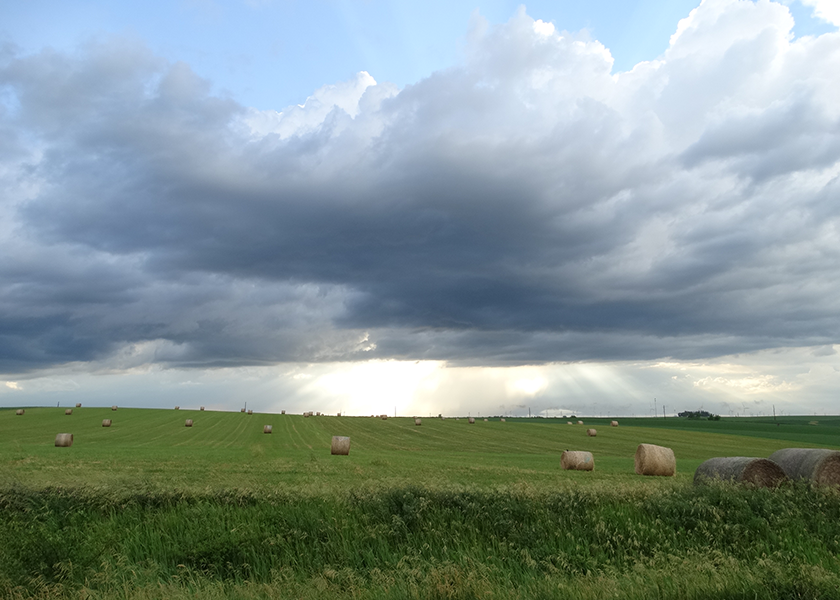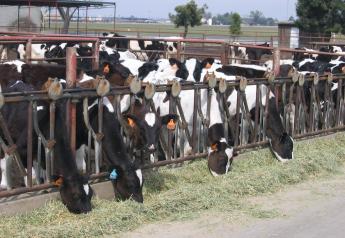Evening Report | February 23, 2024

Check our advice monitor on ProFarmer.com for updates to our marketing plan.
Your Pro Farmer newsletter is now available... The range of estimates for Brazil’s soybean crop remains extremely wide, especially for this late in the growing season. In that regard and weather wise, there are similarities to 2016. The soybean low in 2016 came on March 2, though dry conditions for safrinha corn fueled that rally. Cuts to Brazil’s safrinha corn crop could lead to higher exports of U.S. corn and be a catalyst for a rally this year. The corn (and soybean) market desperately needs a catalyst to spark an overdue and extended price recovery. It appears the Biden administration will take the proverbial middle ground with upcoming key biofuels policy decisions. As has been the case for years, the government apparently wants to give everyone something and no one everything on the biofuels front. Our News page 4 feature this week looks at some of former President Donald Trump’s trade policy proposals, which could have a major impact on the U.S. ag sector if he’s re-elected, as he intends to get even tougher with China. President Joe Biden has largely followed Trump’s trade policy to date but would not be nearly as aggressive as Trump 2.0. Biden wants to target China more selectively on sensitive and national security grounds. A Biden re-election would continue to de-emphasize new trade agreements and increase regulations. We cover all of these items and much more in this week’s newsletter, which you can access here.
Brazilian soybeans headed to U.S. in early spring... At least three U.S.-bound cargo ships are preparing to load with soybeans at two ports in Northern Brazil, according to shipping lineup data seen by Reuters. The shipments would be the first bulk soybean shipments from Brazil to the U.S. since last summer and are schedule to arrive in early spring, earlier than normal. “As Brazil has very low prices, we have a difference of around $50 per ton between FOB port prices here and there in the USA. This more than covers the logistical cost of getting Brazilian soy into the U.S.,” Daniele Siqueira, analyst with AgRural, told Reuters.
The vessel Yasa Mimosa is anchored near Santarem port and the vessel UBC Tilbury is anchored near Itacoatiara port, each waiting to load with around 35,000 MT of soybeans bound for the U.S. according to data from shipping agency Cargonave. A third vessel, the Kian, is scheduled to arrive at Itacoatiara next week for loading with around 34,000 MT of soybeans, shipping lineup showed. The shipments would go into the U.S. East Coast.
The charterer of all three vessels was livestock and poultry producer Perdue.
Renewable diesel’s surge outpacing market demand, creating a challenging outlook for refiners... Despite exceeding the Renewable Fuel Standard mandate, U.S. production capacity for biodiesel and renewable diesel continues to rise, expected to surpass 7 billion gallons soon, according to agricultural economist Scott Irwin of the University of Illinois. He says this oversupply situation is anticipated to worsen in 2024, prompting plant closures and reduced production. While the boom has boosted soybean prices for farmers, the global increase in supplies is offsetting this benefit, dampening expectations of renewable diesel as a solution to agricultural challenges.
Cattle on Feed Report: Placements fall less than expected... USDA estimated there were 11.797 million head of cattle in large feedlots (1,000-plus head) as of Feb. 1, up 43,000 head (0.4%) from year-ago. That marked the fifth straight month of year-over-year increases in feedlot numbers. Placements dropped 7.4% from year-ago, though analysts expected an 11.6% decline. Marketings inched down 0.1% from January 2023.
|
|
USDA |
Average Estimate (% of year-ago) |
|
On Feed on Feb. 1 |
100.1 |
100.4 |
|
Placements in January |
88.4 |
92.6 |
|
Marketings in January |
99.8 |
99.9 |
Placements declined 8.6% for lightweights (under 600 lbs.), 6.0% for 6-weights, 12.8% for 7-weights and 6.0% for 8-weights. Feedlots placed 5.0% more 9-weights and 7.7% more heavyweights (1,000-plus lbs.). Placements dropped 115,000 head in Kansas, 35,000 head in Texas and 25,000 head in Colorado, while they increased 15,000 head in Nebraska and 16,000 head in “other states.”
The underlying data in the report is bullish as there continues to be a tightening supply of cattle moving into feedlots, with placements down from year-ago levels for a third straight month – a trend that will continue. But with placements near the top end of the wide range of pre-report estimates, it will take away some of the friendliness of the data. Still, we expect limited market response.
Cold Storage Report pushed back to Monday... Due to technical issues, USDA will delay the Cold Storage Report scheduled for this afternoon until 2 p.m. CT on Monday, Feb. 26.
FinCEN proposes reporting requirement for cash real estate purchases... The Financial Crimes Enforcement Network (FinCEN) is proposing a new requirement for certain financial entities, like title companies, to report cash purchases of residential real estate. The aim is to combat potential money laundering, particularly in large cities such as New York or Miami, where purchases via LLCs or trusts are common. Farm CPA Report with Paul Neiffer notes that under the proposal, any cash purchase of residential real estate by a trust, LLC or similar entity would need to be reported. This includes land intended for future home construction, potentially impacting farmland purchases. However, financed purchases through regulated financial institutions would be exempt, except in cases where the seller provides financing.
Certain low-risk transfers, such as those due to death, divorce or bankruptcy would be exempt from reporting. However, there is no exemption based on property value.
For transactions involving no reporting person, such as a title company, the individual preparing the deed, often an attorney or title company, would be responsible for reporting.
For farmers, most transactions financed by banks would be exempt. However, cash purchases or those involving seller financing could trigger reporting requirements, adding an additional bureaucratic layer. “All-in-all, just another layer of bureaucracy that farmers will have to deal with if this requirement is put into place. It is currently just a proposal but will likely happen sometime in the future. While the proposal is not yet finalized, it is expected to be implemented in the future,” Neiffer concludes.
USDA to announce additional rule under P&SA... USDA is set to announce an additional rule under the Packers and Stockyards Act (P&SA), following completion of the Office of Management and Budget’s (OMB) review of a final rule from the Agricultural Marketing Service (AMS). This rule, titled “Inclusive Competition and Market Integrity Under the Packers and Stockyards Act,” supplements recent revisions in regulations outlining criteria for determining undue or unreasonable conduct by packers, contractors or live poultry dealers. Aimed at providing essential clarity, the rule defines violations of the P&SA, irrespective of their impact on competition. USDA acknowledges industry division regarding the inclusion of specific prohibited conduct examples. Additionally, two proposed rules under review at OMB address unfair practices, preferences, competition harm and poultry grower payment systems. While USDA’s regulatory agenda targets February for the release of the proposed rule on unfair practices and January for the poultry grower payment system, no timeline is specified for final rules.
FDA’s voluntary premarket Plant Biotechnology Consultation Program... FDA released guidance for industry on voluntary premarket engagement for foods derived from plants produced using genome editing. This guidance aims to support innovation and provide more food choices for consumers. It reaffirms the risk-based approach taken by FDA for foods derived from new plant varieties, which also applies to foods from genome-edited plants. The guidance outlines two voluntary processes through which firms can inform FDA of the steps taken to ensure the safety of foods from their genome-edited plant varieties: voluntary premarket consultations and voluntary premarket meetings. These processes are designed to facilitate the pathway to market for foods from genome-edited plants while maintaining FDA safeguards.






